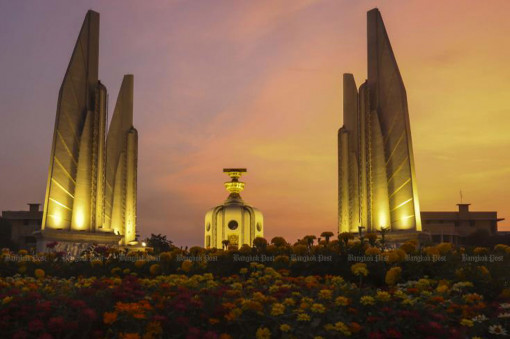Total membership of 100 proposed, with as many as three referenda needed
PUBLISHED : 23 Dec 2023 at 18:34

The new constitution drafting assembly will comprise 77 provincial representatives and 23 others who are experts and representatives from various groups, says the head of a sub-committee on rewriting the constitution.
The government panel is currently gathering public opinions on its proposal for rewriting the constitution.
The 23 members of the assembly will include five public law experts, four experts in political science and public administration, and four members with a background in politics or charter drafting, said Nikon Jamnong.
The rest will represent various groups, with two representing children’s and youth organisations; two from women’s groups; two from organisations working on elderly rights and welfare; two to advocate for the rights of the disabled, and two promoting gender diversity, he said.
After holding multiple hearings, the sub-committee on Monday submit its conclusion to the main constitution amendment committee. Opinions were drawn from students, professional and civic groups and parliamentarians.
As for the number of referenda that will be held, three was the most common choice proposed in hearings, said Mr Nikorn.
The first referendum would seek to determine whether a majority of the public supports the charter-amending proposal, while the other two would follow later, he said.
“What is also important — and what needs to be discussed at Monday’s meeting of the main committee is how to keep the costs of organising all these public referenda as low as possible,” he added.
The three referenda would cost approximately 9.6 billion baht, said Thanakorn Wangboonkongchana, a list-MP of the United Thai Nation Party, citing a previous estimate by the Election Commission.
He suggested the government schedule each referendum to coincide with a local election where possible, to help reduce costs.
Parit Wacharasindhu, a spokesman for the opposition Move Forward Party, affirmed its stance that all members of the drafting assembly must come from an election, not via selection by parliament.
He suggested a quota of experts and interest group representatives could be elected at the same time using three ballot papers: one for choosing the provincial representative, another for picking a representative in the expert group and the final one for electing people from other groups.
Move Forward has proposed that the government also ask the public in the first referendum whether or not they want all members of the drafting assembly to come from an election.

